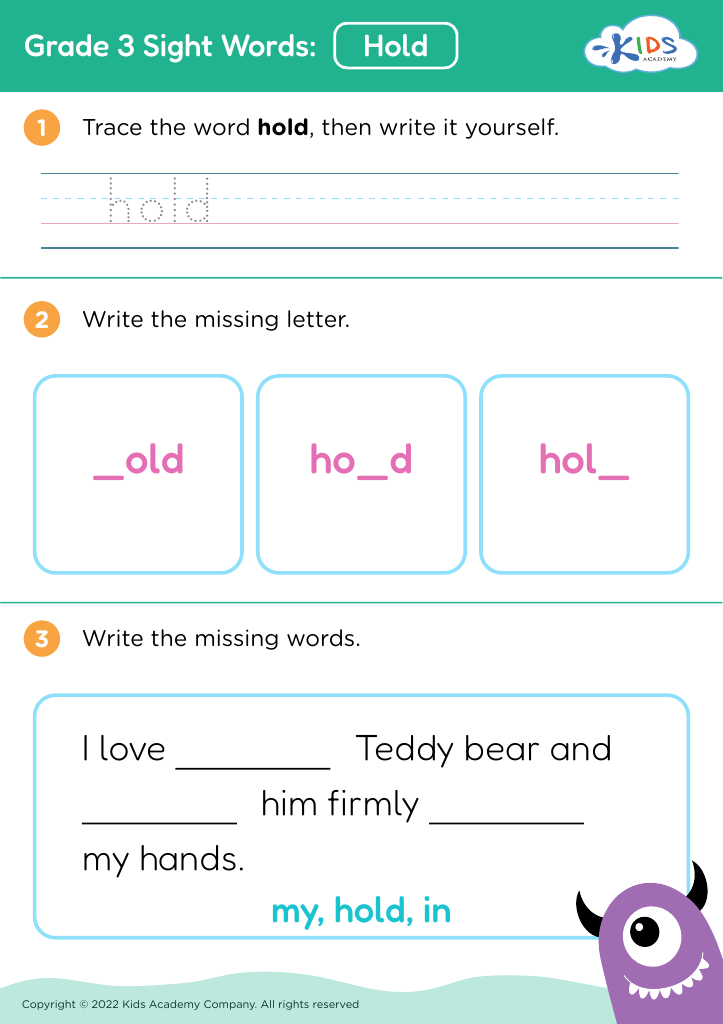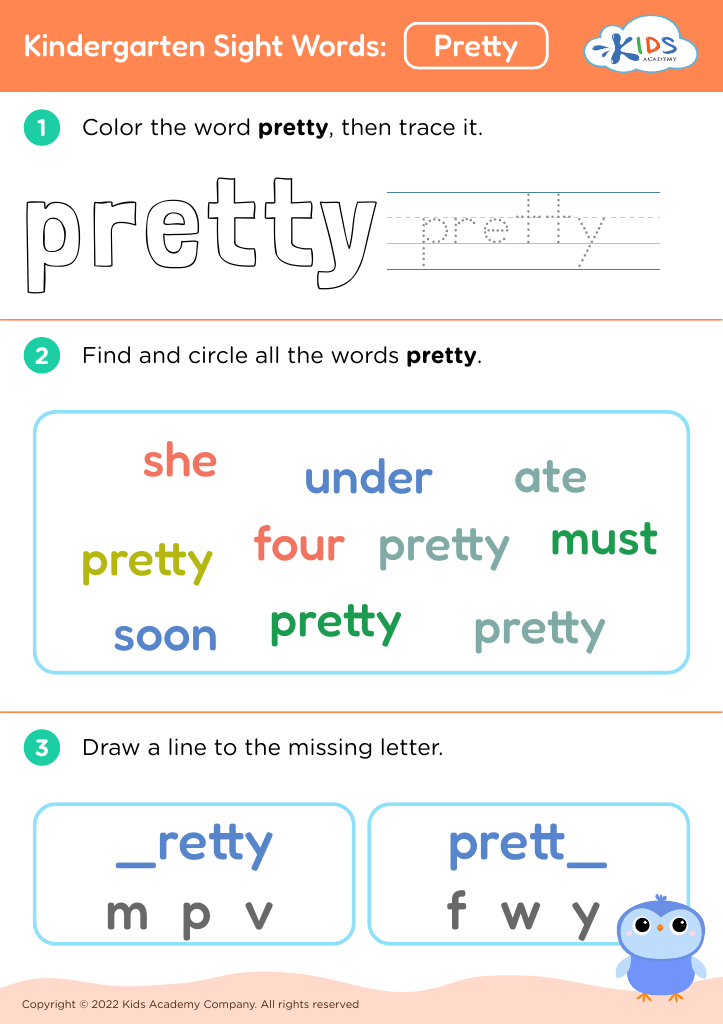Enhance counting skills Building Vocabulary Worksheets for Ages 3-8
3 filtered results
-
From - To
Enhance Counting Skills Building Vocabulary Worksheets for Ages 3-8 are designed to foster essential early math and language development. Featuring engaging activities that creatively intertwine counting practice with vocabulary building, these worksheets cater to young learners through fun themes and relatable contexts. Children will practice their counting skills while also expanding their word knowledge, building confidence in both numeracy and language. Perfect for classrooms or at-home learning, these resources provide diverse exercises suited for different learning styles. Encourage a love for learning while helping your child master counting from 1 to 20 and enhance their vocabulary simultaneously! Download and get started today!
Enhancing counting skills and building vocabulary for children aged 3 to 8 is vital for their overall cognitive and linguistic development. These foundational skills are essential as they lay the groundwork for future academic success. Strong counting skills bolster mathematical understanding, promote problem-solving abilities, and enhance logical reasoning. Before children learn complex concepts such as addition and subtraction, they need a solid grasp of counting, which serves as the building block of mathematics.
Equally important, building vocabulary at this age fosters effective communication and helps children express their thoughts and feelings clearly. A rich vocabulary aids in reading comprehension, encourages critical thinking, and allows children to engage actively with the world around them. The more words children know, the better they can process and analyze information, laying the groundwork for literacy development.
Moreover, these skills are not developed in isolation; they promote interactive and collaborative learning experiences through play, storytelling, and discussions, encouraging socialization and emotional intelligence. Thus, by nurturing counting skills and vocabulary, parents and teachers equip children with the tools they need for lifelong learning, academic achievement, and adaptability in a rapidly changing world. Prioritizing these skills is an investment in a child's future.

















.jpg)











